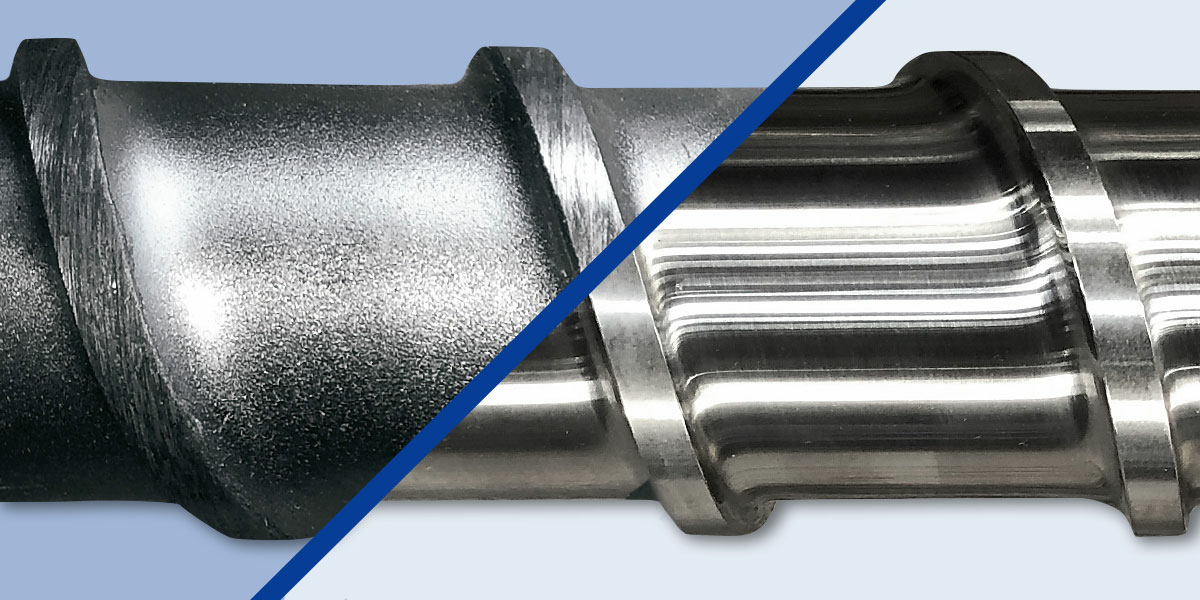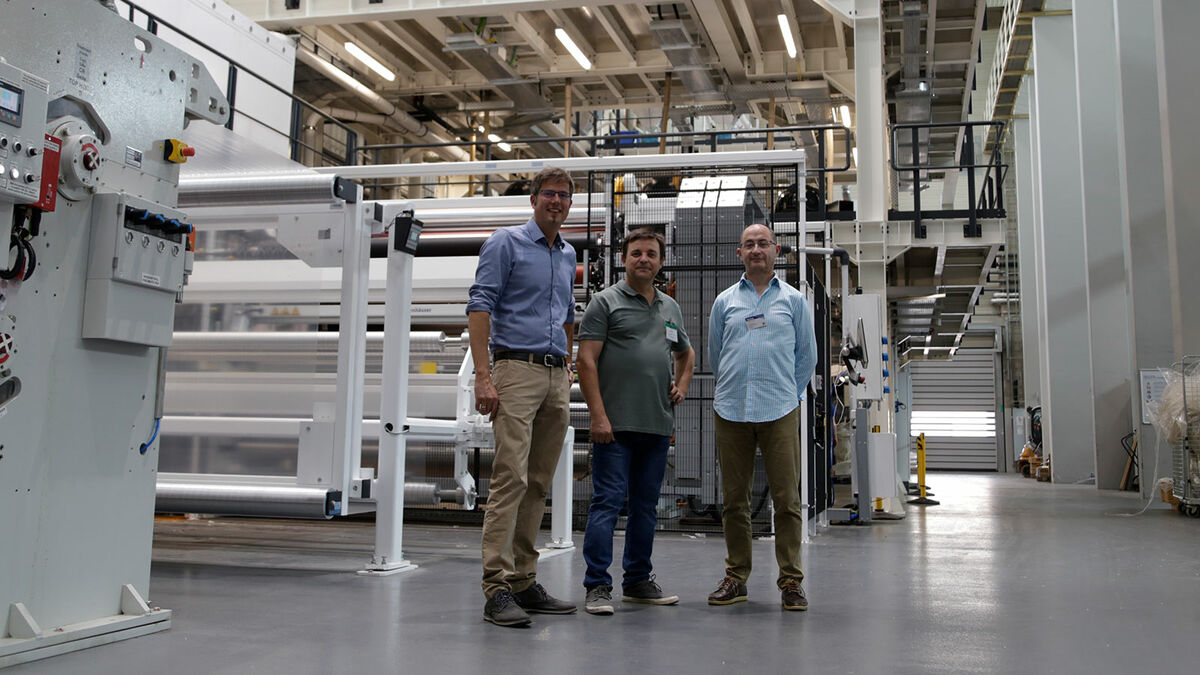
Line conversion: Fit for the future
Many things can happen within the life cycle of an extrusion line. Parts wear out and need replacing, new technologies come onto the market, and the requirements for products and processes change. It is then often unavoidable to carry out modifications to the line.
Each case is different and dictates whether just a single component needs replacing or the entire line needs upgrading. "No two projects are the same," confirms Daniel Matejko, Team Leader Service Sales at Reifenhäuser Blown Film. And Nicolas Bröcher, Service Sales/Modifications at Reifenhäuser Cast Sheet Coating, adds: "The challenge is to translate the different requirements into concrete modification solutions." Together with the Reifenhäuser service team, both modification experts advise and support customers in upgrading their lines.
Securing line availability
Among other things, a conversion may be required to secure line availability. At the Indevco Group, headquartered in Ajaltoun, Lebanon, the managers decided to take action and upgrade the existing hot part to a version with the latest technology. "The group has become one of our most important partners and has purchased multiple blown film lines that are now gradually in the process of being upgraded," says Matejko. For example, one line had a new 3-layer hot part installed, including three extruders, the die head, and other components. The existing haul-off and winder were integrated in the new technology. "This retrofit with the latest line technology is Indevco's next step toward extending the service life of its extrusion portfolio," says Matejko.
Converting old lines to new technology
A conversion can also be instigated by technological changes. For example, in recent years, the product life cycle especially of electronic components and software has become significantly shorter - at some point, discontinued components are no longer suppliable. "In these cases, a conversion is the only solution to ensure line availability and extend service life - ideally before the affected parts fail," Matejko emphasizes.
Leygatech, a French manufacturer of multilayer film applications for the packaging industry, has also taken a proactive approach. The company has several Reifenhäuser blown film lines in operation, some of which are around 20 years old. "Technically, of course, a lot has happened in this time, for example in the field of automation and control," says Matejko. For this reason, the complete line control system of a blown film line dating from 2003 was converted to a new version in 2021. This involved all programmable logic controllers (PLCs) and frequency converters, as well as all control panels for the extruder, haul-off, and winder. "The complete upgrade of the control system means that old lines built between 2001 and 2009 are well positioned for many more years to come," says Matejko.
The special feature Reifenhäuser installed completely new, pre-installed control cabinets at Leygatech to minimize downtime, instead of performing the time-consuming electrical installation on site. "Every minute the line is not running costs the manufacturer money," clarifies Matejko. "That's why we try to keep downtime as short as possible - even though the complexity of many conversions means they can't be completed in the twinkling of an eye. The current global supply problems don't make the task any easier either."
Reifenhäuser cleaning services: back to producing quality faster
It’s absolutely indispensable to clean blown-film die heads, dies, and other components. How our special Reifenhäuser cleaning services help you to shorten line downtimes.

Worn screws (left) can affect performance and quality
Improving performance
In other cases, upgrading line technology is the solution for improving performance or quality, as in the case of a bubble wrap manufacturer in Spain. Packsa Técnica SL has been producing protective film for a variety of different applications, such as removals or shipping packaging, since 1999. "In 2011, we wanted to increase output and respond to new quality requirements on the market," says owner Jorge Sempere Avellán. "It was at this point that we first thought about upgrading our line."
Packsa canvassed for bids and in 2013 finally replaced the old extruder made by another manufacturer with two new extruders from Reifenhäuser. In 2019, an 80 mm Reifenhäuser extruder was added to boost output by one more notch. "We chose Reifenhäuser because of we considered them as one of the leading manufacturers of plastic extrusion lines," says Sempere Avellán. "Our expectations were indeed fulfilled: Even after more than ten years, our production runs with complete reliability."

Packsa Team
Responding to new demands
Due to their all-round positive experience, Packsa has now turned to Reifenhäuser with a new demand: The Spanish company now wants to produce films using the coextrusion process in addition to their mono-extrusion lines. "Coextrusion presents us with totally new challenges," says Sempere Avellán. Packsa plans to use it to expand the range of products it can process, such as producing film with a lower weight, while maintaining the same properties and processing more recyclate. "This is not a standard conversion," Broecher says. "We are therefore holding many discussions with Packsa on their requirements, sometimes together with our Spanish representative, Jon Calleja. In addition, we have already carried out initial tests on the requested coextruder composites at our Reifenhäuser Technology Center in Troisdorf."
Especially when customers approach the service team with new demands - as in this case - a solution often emerges from close relations between the customer and the machine manufacturer. "We know our lines very well and have all the expertise for conversion in-house - from design and manufacturing to installation at the customer's site," Broecher emphasizes. "Customers bring lots of experience and knowledge to their products. Together, we find a way."
Sustainability - the driving force
This also applies to requirements that are currently rapidly becoming more important. "Many manufacturers want to produce more sustainably and energy-efficiently," says Matejko. "For example, there are special die heads, air rings, and other line components to extend the cleaning intervals for processing recyclate. In addition, retrofittable insulation for dies, connecting lines, and extruders reduces energy consumption. "Conversions can be used to introduce a number of options," Böttcher emphasizes
Want to make your line fit for the future, too? Then contact with us.